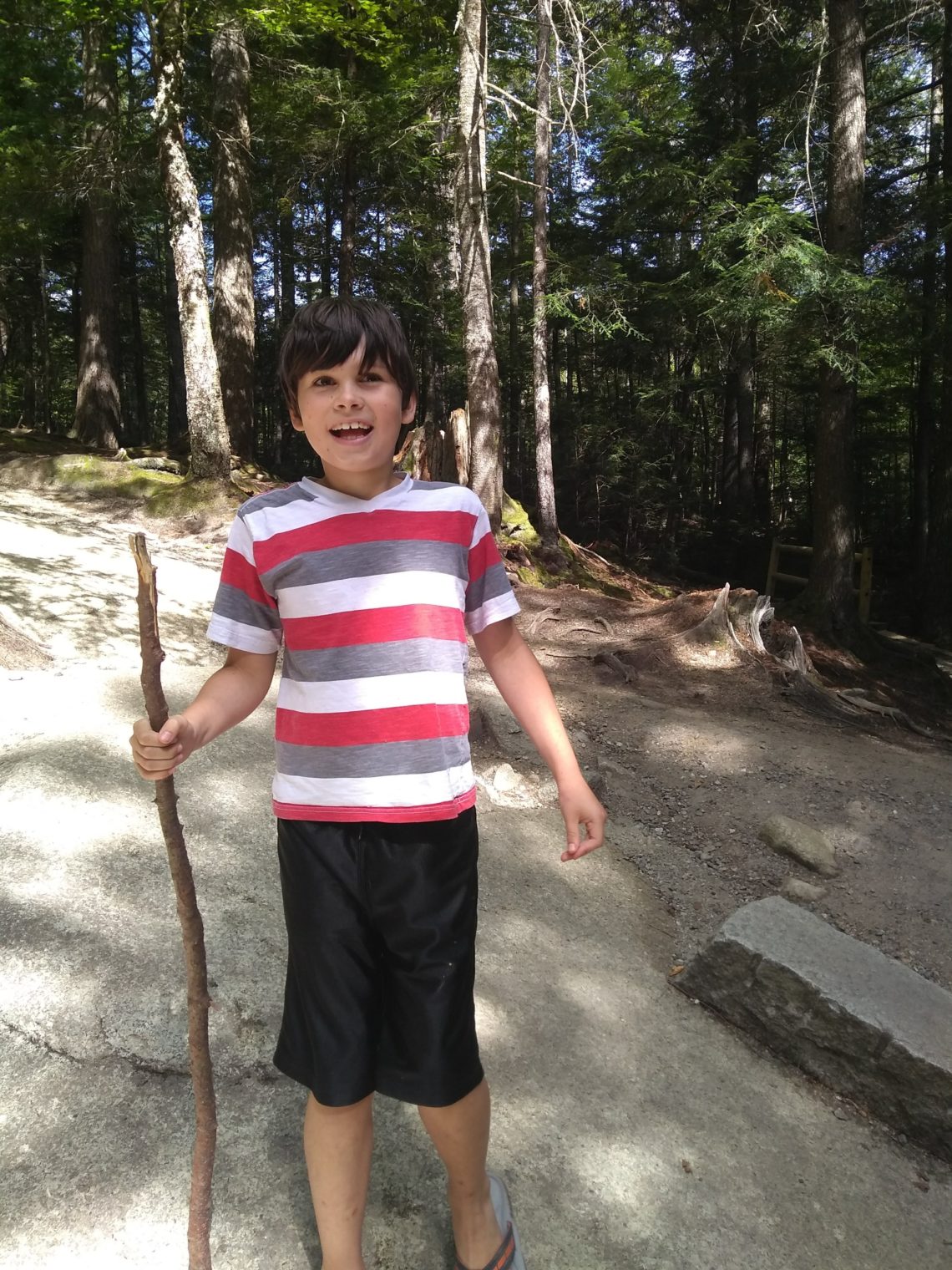
Resilience
Resilience. That is the word that has been bouncing in my head this week. As a therapist, it was a word that came up frequently when writing therapy goals and progress notes with clients. It is also one of the behavioral standards that kids are rated on at Ryan’s school.
What does it really mean though? Imagine walking across hot coals. If you cry and scream the whole way across, but then keep on walking and are willing to try it again, are you resilient because you bounced back? Or not resilient because you cried and screamed? Do you need to cross the coals without flinching in order to be considered resilient? If you wear protective footwear to cross and cannot even feel the heat, does that make you more resilient than someone who cried out while crossing barefoot, even though you didn’t experience any of the pain that they did?
When testing the resilience of materials, we are looking at their ability to bounce back after being bent. Resilience doesn’t mean never bending.
This term Ryan came home with a fantastic progress report. All of the numbers were great except for resilience, where he received the lowest possible score. The teacher’s narrative described how he is such a joy to have in class, he is so creative and always coming up with new ideas. He is doing great, but he lacks resilience. Teachers work with him on tools to build resilience, we have an IEP meeting next week that will likely center around his resilience as well.
When I read his progress report, my immediate response was gladness and a feeling that his teacher had a good understanding of him. It seemed like an accurate and fair assessment of my child’s strengths and challenge areas. I understand what the teacher meant by the word resilience, she didn’t even choose the word herself. The more I thought about it though, the more the word resilience stuck in my head.
Ryan is extremely sensitive, he is fragile and not very durable. One thing he does not lack though, is resilience.
The other day he told me that he had created a Sword of Sorrows at school, an imaginary sword that absorbs your sorrows for you when you wield it. I asked him why he needed a Sword of Sorrows and he told me he created it after he fell down at recess and no one asked if he was okay. Knowing him, there is a good chance it was just a small stumble that wouldn’t bother most kids. It bothered him though, and he dealt with it without running away or melting down. His solution was definitely one that was uniquely his own, but it worked for him and he was able to bounce back from being upset.
From talking with his teachers, I know that there are times at school when he gets overwhelmed on a sensory level, times when he gets upset and frustrated with his routine going awry, complex social situations or not living up to his own high standards or perfectionism with schoolwork. This usually results in about five very stressful minutes of a mini-meltdown.
For some kids, particularly neurotypical ones, those mini-meltdowns might be a sign of lacking resilience. Not for him. He is already coping so well on a daily basis with a sensory onslaught and a world not designed for his neurology. Ryan has the strongest flight instinct I have ever seen. When things get so loud or overwhelming that he can’t handle it, his beloved routine gets turned upside down confusing his expectations, or invisible social cues leave him feeling isolated or looked down on, his immediate response is to run. No matter where he is or what he is wearing, his flight instinct kicks into overdrive and he wants to run as far away as he can.
We’ve worked with him over the years to help him control his responses to obstacles. He has come so amazingly far over the years that it becomes easy to forget about all the different things he copes with on a daily basis. Things that a neurotypical student isn’t bothered by and doesn’t need to cope with. Most things he doesn’t show any outward sign of being bothered by, even though inside they could be tearing him apart. He uses his creativity as an outlet to manage a lot of it. When things do become so overwhelming for him that he can no longer ignore it, he no longer runs as quickly and as far as possible. He has learned to calmly step away, silently sob, or ask for help – whatever he needs to do. In five minutes he can gather himself and regroup and that is pretty awesomely resilient if you ask me.
This is the same person who in preschool was guaranteed to spend hours screaming after putting a single crayon mark on a piece of paper because it was never perfect to him. In kindergarten meltdowns usually meant I had to pick him up or he spent several hours in a separate classroom. In first grade, he had to leave the classroom for up to half an hour at times. By second grade he had a better handle on his reactions, but he dreaded going to school on a daily basis.
In third grade, after several years of having a class with the same group of kids, and studying flashcards to learn everyone’s name, he finally found his stride. Not only was he able to meet most obstacles, but he started to remember some of his classmates’ names and make some friends. Then in the last month of school, we moved him an hour and a half away. To a new school full of new faces whose names he couldn’t remember, where no one knew just how hard he works on a daily basis to maintain a sense of normal. Not only did he not fall apart, he has thrived and been happier than I ever saw him in our previous town. That is true resilience.
He runs into stumbling blocks and sometimes they do overwhelm him for a few minutes. Yes, he still needs to continue to improve his coping mechanisms, but this child does not lack resilience.
Rather, he is one of the most resilient people I know. Plenty of things bother him or overwhelm him, he is way more sensitive than most. Yet, he pulls himself together in minutes and doesn’t even show signs of being bothered by most things (even when they are really hard). He walks out of school every day with a smile and wakes up every morning excited to go back again. He continues to extend kindness and generosity even to kids who are mean to him or want nothing to do with him, while reminding me that “maybe they just need time to learn to be a good friend”. No matter how hard something is for him (and plenty of things are much harder for him than for neurotypical kids) , he goes back and tries again and again with a smile on his face.
In the metaphor of walking on hot coals, he is going across barefoot with no protection. Sometimes he cries out, but he always goes back and keeps trying. Many of his classmates have protective footwear and will never even feel the warmth of those coals, let alone the burning pain. Yet he is the one crying out, so he is said to lack resilience. In reality he demonstrates more resilience on a daily basis than most kids ever have to. After all, resilience doesn’t mean not bending, it just means bouncing back.




